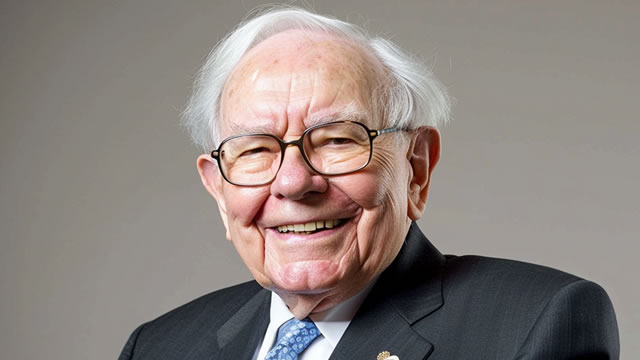Berkshire Hathaway’s Q4 2024 Earnings: A Cautious Approach to Equities
Berkshire Hathaway, the multinational conglomerate led by legendary investor Warren Buffett, reported impressive operating income growth in Q4 2024. The company’s income surged by an impressive 71% Year-over-Year (YoY), reaching a total of $14.5 billion. This significant increase can be attributed mainly to robust operating gains in the insurance business.
Strong Performance in the Insurance Sector
Berkshire Hathaway’s insurance businesses, including Geico and National Indemnity, played a pivotal role in the company’s Q4 earnings growth. The insurance sector reported an underwriting gain of $3.1 billion, up from $1.6 billion in the previous year. This substantial improvement was driven by favorable reserve development and strong investment income.
Buffett’s Cautious Equity Outlook
Despite the solid macroeconomic backdrop, Warren Buffett expressed caution regarding equities during Berkshire Hathaway’s 2024 annual meeting. The company sold a staggering $143.4 billion in stocks during the fiscal year, while purchasing only $9.2 billion. This significant net selling activity is an indication of Buffett’s belief that the stock market may be overvalued.
Impact on Berkshire Hathaway Shareholders
For Berkshire Hathaway shareholders, the lack of stock buybacks and minimal new equity investments in 2024 could result in lower capital gains and reduced dividends. However, the company’s strong operating income growth and solid financial position provide a foundation for future growth opportunities.
- Lower capital gains: The absence of stock buybacks and minimal new equity investments may lead to lower capital gains for shareholders, as the company does not repurchase its own shares to increase earnings per share.
- Reduced dividends: With no new equity investments, Berkshire Hathaway’s dividend payments may not grow as rapidly as they would if the company were investing in new businesses or expanding existing ones.
- Future growth opportunities: The company’s strong operating income growth and solid financial position enable it to explore potential acquisition targets and invest in new businesses when opportunities arise.
Global Implications
Berkshire Hathaway’s decision to sell a substantial amount of stocks and refrain from buying back its own shares could have broader implications for the global stock market. Some market analysts argue that the company’s actions may signal a broader trend of caution among institutional investors and could potentially lead to a correction in the market.
- Institutional caution: Berkshire Hathaway’s actions may encourage other institutional investors to adopt a more cautious approach to equities, potentially leading to a slowdown in the market.
- Potential correction: The significant net selling activity by Berkshire Hathaway and other institutional investors could contribute to a correction in the global stock market.
- Long-term implications: The long-term implications of Berkshire Hathaway’s actions on the global stock market remain to be seen, as the company’s investment decisions can influence market sentiment and trends.
Conclusion
Berkshire Hathaway’s strong Q4 2024 earnings, driven by robust operating gains in the insurance business, were overshadowed by Warren Buffett’s cautious outlook on equities. The company’s substantial net selling activity and lack of stock buybacks in 2024 may result in lower capital gains and reduced dividends for shareholders. Furthermore, Berkshire Hathaway’s decisions could have broader implications for the global stock market, potentially leading to a correction or a more cautious approach among institutional investors.
As always, it is essential for investors to closely monitor market trends and company-specific news to make informed decisions regarding their investment portfolios. Berkshire Hathaway’s actions serve as a reminder of the importance of maintaining a long-term perspective and being prepared for market fluctuations.





